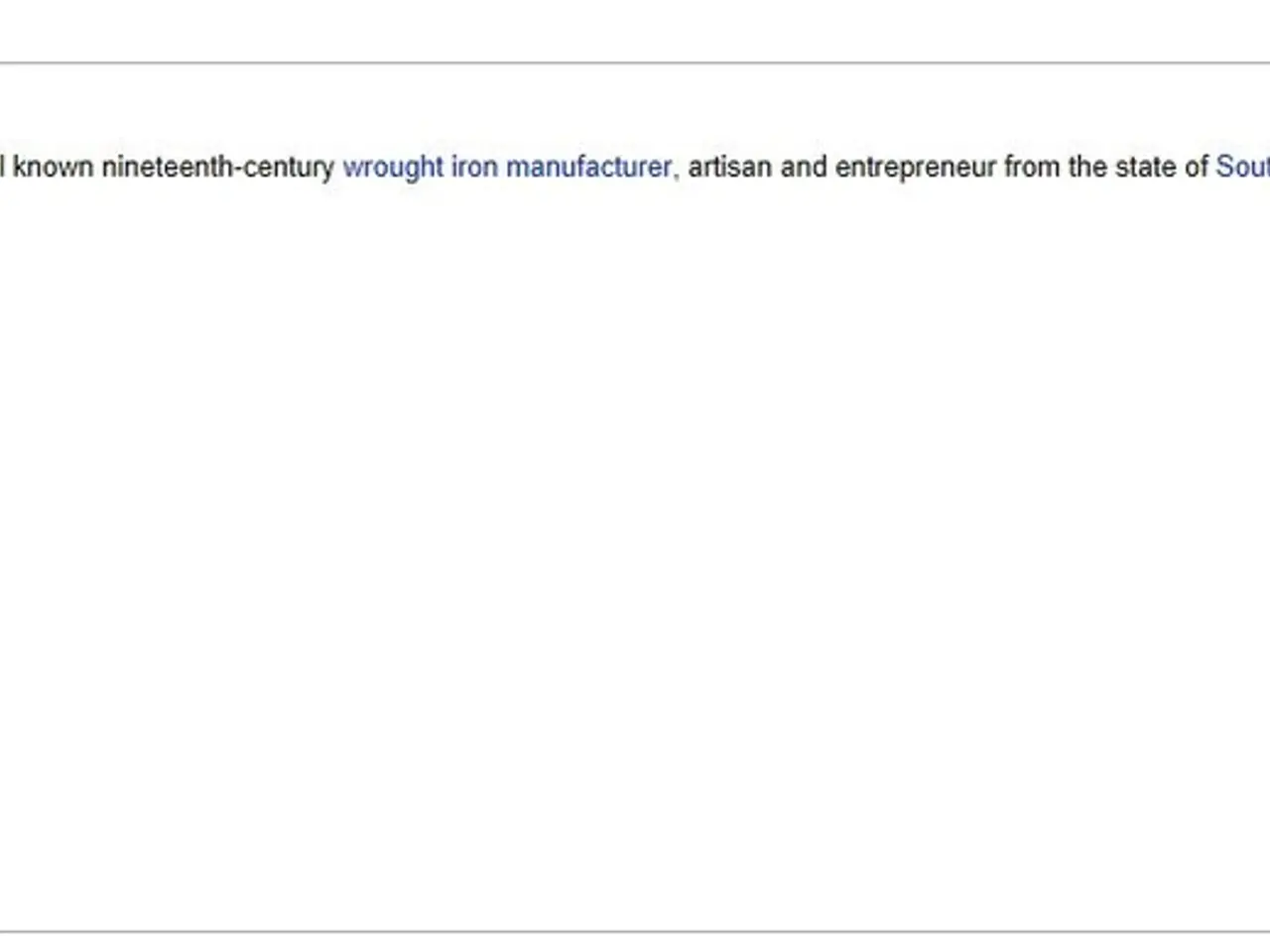Identify Individuals Under Restraint
Germany's Coalition Committee: A Key Player in Stability and Conflict Resolution
The newly formed German federal government, a coalition between the CDU/CSU and SPD, has established a coalition committee to manage and resolve conflicts between its partners. This critical body, as outlined in the coalition agreement titled "Responsibility for Germany," is designed to play a significant role in maintaining government stability and cohesion.
Matthias Miersch, SPD's General Secretary, described the plans as "intentions," emphasizing that the contract is not the Bible or a law. The coalition agreement, while serving as a political guideline and working basis for the government, does not have legal binding effect and can be renegotiated during the government’s term.
The committee, anchored in the agreement, will meet monthly, with the possibility of additional meetings at the request of a coalition partner. Its discussions will focus on matters of fundamental importance and conflict cases. The committee gives more power to party leaders, including those not sitting in the Bundestag or government, such as Markus Söder.
Jens Spahn, the new Union faction leader, emphasizes the economic upswing as the "precondition for everything else." In the first 100 days until summer, the coalition partners will likely focus on reviving the German economy, with an "investment booster" for the economy, tax relief, bureaucratic reduction, the presentation of the 2025 budget, changes to the Building Energy Act, and a "policy turnaround" in migration on the agenda.
However, the coalition agreement, compared to the previous one, is described as "less ambitious and less clear" by the Bertelsmann Foundation. There are already differing interpretations on migration, mother's pension, or minimum wage increase in the coalition agreement. The implementation of all projects will depend on the financial reservation, leaving room for potential coalition disputes, especially since two budgets need to be hammered out in 2025.
Some compromises in the coalition agreement were made abstractly, with concrete elaboration postponed. This approach aims to prevent future disputes and create transparency for the public. The coalition committee, a new organizational feature, is introduced in the coalition agreement to provide flexibility and address issues similar to those faced by the traffic light government.
The coalition committee's role is evident in recent coalition tensions, such as the dispute over the nomination of a Constitutional Court judge. The committee’s ability to reconcile divergent party positions has direct consequences for governmental unity and legislative progress. For example, a rift emerged when the center-right bloc (CDU/CSU) withdrew support for an SPD-nominated candidate, leading to threats of parliamentary abstention and emergency meetings within the coalition.
The committee's effectiveness impacts the likelihood of future coalition disputes. When coalition parties rely on the committee to handle disagreements internally and transparently, it reduces the risk of public conflicts that can weaken the government’s public image and legislative efficiency. Conversely, failure by the committee to mediate disputes can escalate tensions, as observed in recent political crises, making future instability more probable.
In summary, the coalition committee serves as a key platform for dispute management and policy coordination within Germany’s federal coalition governments. Its role can be seen as both a barometer of coalition health and a mechanism to mitigate factional disputes before they impede governance.
- In the midst of discussions on general news, the coalition committee, delineated in Germany's policy-and-legislation titled "Responsibility for Germany," plays a significant role in managing conflicts and ensuring stability within the coalition government.
- The critical role of politics, particularly the coalition committee, comes into focus during times of conflict resolution, as seen in the recent dispute over the nomination of a Constitutional Court judge, where its ability to reconcile divergent party positions impacts the likelihood of future coalition disputes and the government's legislative efficiency.







